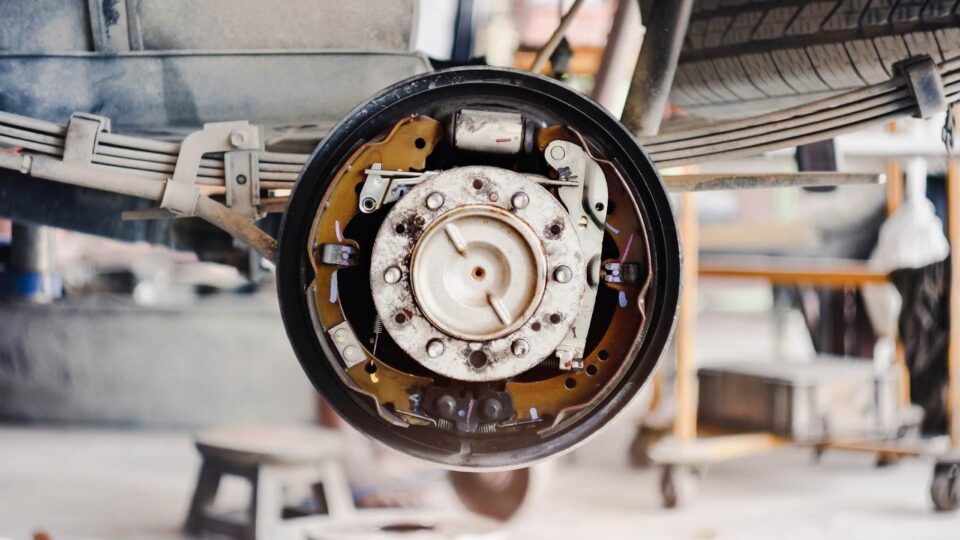Your truck’s brake system is one of its most critical safety components, ensuring you can stop quickly and safely when needed. Regular brake system maintenance is essential for your safety and the longevity of your vehicle. In this guide, we’ll explain the importance of a truck’s brake system, provide guidance on recognizing signs of brake issues, and help you understand when it’s time to replace brake components.
The Importance of a Truck’s Brake System:
A truck’s brake system is responsible for slowing down and stopping your vehicle when you press the brake pedal. It consists of various components that work together, including:
Brake Pads: These press against the brake rotors to create friction and slow down the wheels.
Brake Rotors (Discs): The rotating discs that the brake pads clamp onto to create friction and stop the wheels.
Brake Calipers: These house the brake pads and control their movement.
Brake Lines and Hoses: These carry brake fluid from the master cylinder to the calipers.
Master Cylinder: It generates hydraulic pressure to engage the brakes when you press the pedal.
Proper brake system maintenance is crucial because:
Safety: A well-maintained brake system ensures you can stop quickly and effectively, reducing the risk of accidents.
Longevity: Regular maintenance can extend the lifespan of your brake components, saving you money on replacements.
Cost Savings: Addressing brake issues early can prevent more costly repairs in the future.
Signs of Brake Issues:
Recognizing the signs of brake problems is essential for addressing issues promptly. Here are some common signs that your truck’s brake system may require attention:
Squeaking or Squealing: High-pitched squeaking or squealing noises when you apply the brakes may indicate worn brake pads. This noise is often caused by a wear indicator built into the pads.
Grinding: A grinding noise when braking typically indicates severely worn brake pads. If left unaddressed, it can damage the brake rotors, leading to more expensive repairs.
Soft Brake Pedal: A brake pedal that feels soft or spongy when you press it may indicate air in the brake lines or a brake fluid leak. Both situations require immediate attention.
Vibration or Pulsation: If you feel a vibration or pulsation in the brake pedal when you apply the brakes, it could be a sign of warped brake rotors. Warped rotors can reduce braking effectiveness.
Pulling to One Side: If your truck pulls to one side when you brake, it may indicate uneven brake pad wear or a brake caliper issue.
Dashboard Warning Lights: Modern trucks often have dashboard warning lights for the brake system. If the ABS (Anti-Lock Braking System) or brake warning light comes on, have your brakes inspected immediately.
When to Replace Brake Components:
Knowing when to replace brake components is essential for maintaining a safe and effective brake system. Here are some general guidelines:
Brake Pads: Brake pads typically need replacement every 20,000 to 60,000 miles, depending on your driving habits, the type of brake pads used, and the manufacturer’s recommendations. However, it’s essential to inspect them regularly for wear and replace them when they are worn down to about 3 millimeters.
Brake Rotors: Rotors may need replacement if they become warped, scored, or worn beyond the manufacturer’s specified minimum thickness. It’s often recommended to replace rotors when changing brake pads to ensure proper braking performance.
Brake Fluid: Brake fluid should be changed as recommended in your truck’s owner’s manual or by a professional mechanic. It’s typically done every 2 to 3 years or when the fluid appears discolored or contaminated.
Brake Calipers: Brake calipers can last a long time, but they may need replacement if they become stuck or if there are signs of leakage.
Brake Hoses and Lines: Inspect brake hoses and lines for signs of wear, cracking, or leakage. Replace them if they show any signs of damage.
Master Cylinder: The master cylinder may need replacement if you experience a soft or spongy brake pedal, which can indicate internal seals or piston wear.
ABS Components: If your truck’s ABS system experiences issues, it’s essential to have it diagnosed and repaired by a qualified mechanic to ensure proper functioning.
Conclusion
In conclusion, a truck’s brake system is critical for safety, and proper brake system maintenance is essential. By recognizing the signs of brake issues and following recommended maintenance schedules, you can ensure that your truck’s brakes perform effectively and safely. Don’t ignore any signs of brake problems, and always seek professional help when in doubt to keep your vehicle and everyone on the road safe.

